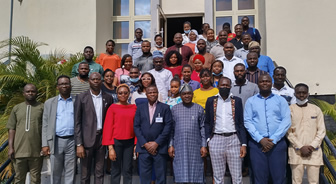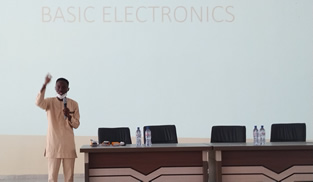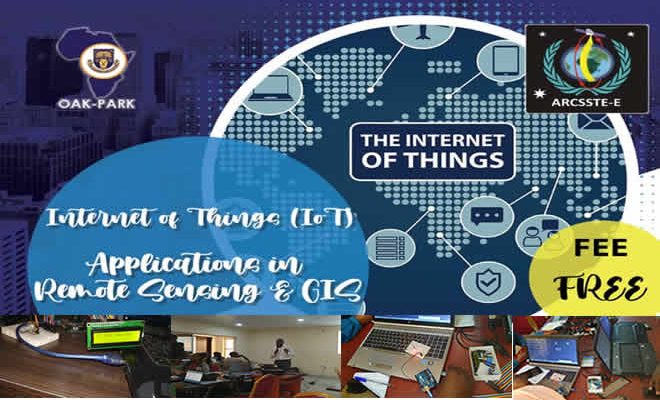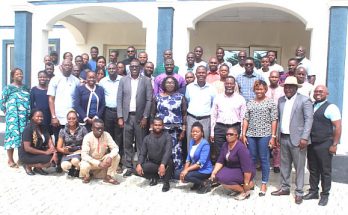The need to build capacity in technology through the provision of a platform that enhances the scope of people in connecting and controlling devices with big data technology, which will in return promote performance efficiency, economic benefits and reduce human involvement, justified the organization of a 5-day training workshop on Internet of Things (IoTs) applications in Remote Sensing and GIS.
The Programme, a joint initiative of OAK-Park (African Centre of Excellence in Software Engineering, Obafemi Awolowo University, Ile Ife) and the African Regional Centre for Space Science and Technology Education – English, Obafemi Awolowo University Campus, Ile Ife took place from the 5th to 9th October, 2021. It was the first in series of traiings to be organized by the two Centres.
Internet of Things (IoTs) extends internet connectivity beyond the scope of personal computers and mobile devices to a wide range of non-internet enabled devices. Once embedded with technology, the devices are brought to life and can communicate with each other through the internet implying they can be monitored and controlled remotely. This advancement has led to the development of several smart devices and objects including: smart appliances, smart security systems, smart assistants, fitness trackers etc.
The training had forty-nine participants from Nigeria, Zimbabwe, Tanzania, Ghana, Benin, Guinea, Sierra Leone and Liberia.
Participants were introduced to the concept of IoT, Basic Electronics and Arduino IDE. The connectivity building blocks, design/ security considerations and frameworks of IoT were also explained.
The Course contents also included an overview of C++ programing language, Sensors, Basic Electronics (Voltage, Direct and Alternating Currents, Resistors, Capacitors, Diodes, Transistors, Inductors etc)


The Arduino IDE was also introduced as an open source software mainly used for writing and compiling code into the Arduino Module. Examples include: Arduino Uno, Arduino Mega, Arduino Leonardo, Arduino Micro amongst others. It was explained that the IDE environment consists of mainly two basic parts: Editor and Compiler. The former is used for writing the required code while the latter is used for compiling and uploading the code into the given Arduino Module.
Participants were divided into groups for hands-on sessions. Several embedded systems including: LED blinking; 7-Segment Display; Counters; Scroll LCD; were developed using Arduino IDE combined with Arduino Uno, Breadboard, LED, Resistor, Jumper cable and USB cable
Several application areas of IoT in Remote Sensing/ GIS were highlighted to include agriculture, traffic management, retail services, smart cities, waste collection, maritime, healthcare, selection of mineral deposit sites, e-learning delivery.
At the end of the workshop, participants narrated their learning experience while the organizers led by Professor Aderounmu encouraged them to build n what they have been taught. He further advised them to think outside the box in order to become relevant in solving present and future challenges.



